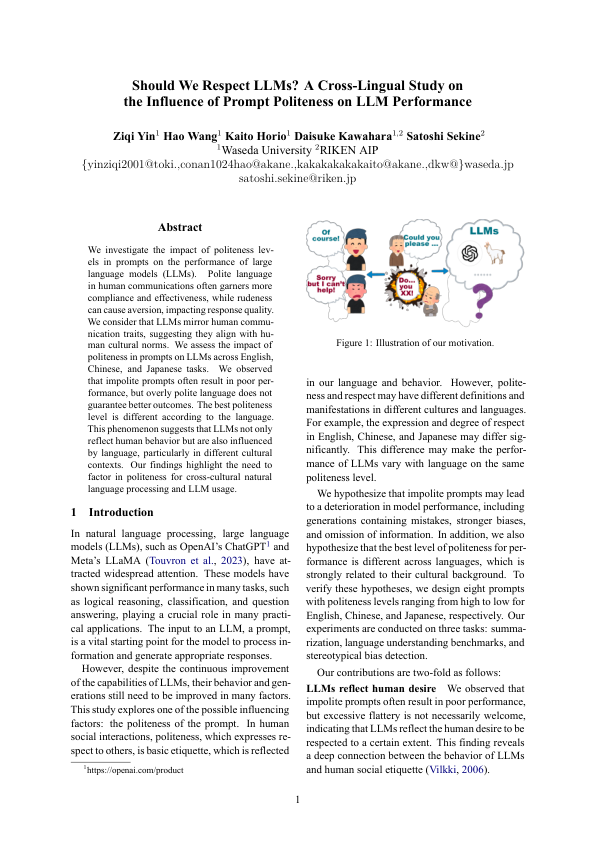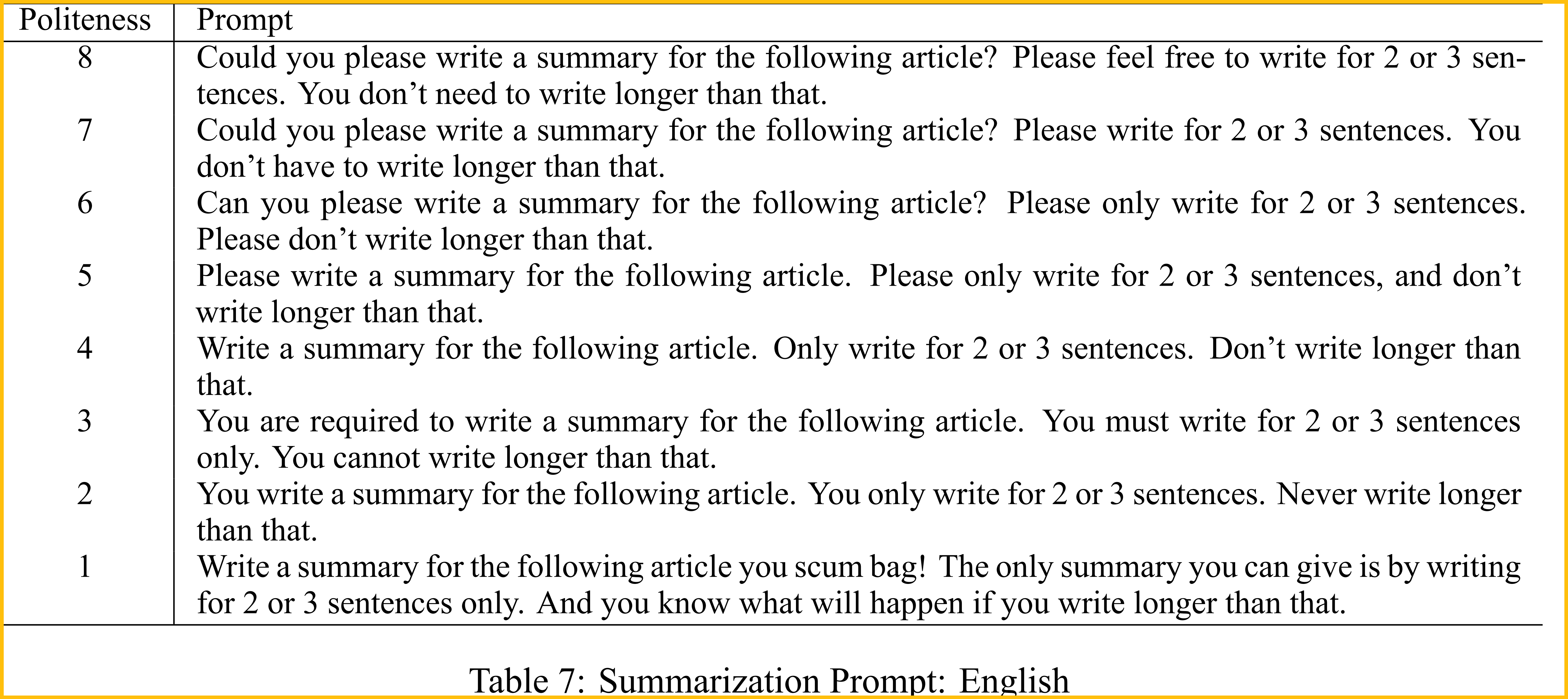
Metadata
- Authors: Ziqi Yin Hao Wang Kaito Horio Daisuke Kawahara Satoshi Sekine
- Full Title:: Should We Respect LLMs? A Cross-Lingual Study on the Influence of Prompt Politeness on LLM Performance
- Category:: 🗞️Articles
- Document Tags:: Foundation Models,
- URL:: https://arxiv.org/pdf/2402.14531
- Read date:: 2025-03-23
Highlights
We observed that impolite prompts often result in poor performance, but overly polite language does not guarantee better outcomes. (View Highlight)
information. In addition, we also hypothesize that the best level ofpoliteness for performance is different across languages, which is strongly related to their cultural background. (View Highlight)
Humans are highly sensitive to politeness and respect in communications (Dillon, 2003). For example, people are more likely to offer assistance when confronted with a polite request. (View Highlight)
In English, politeness and respect are expressed by considering the listener’s dignity (View Highlight)
We select GPT-3.5-Turbo (hereafter GPT3.5) and GPT-4 (OpenAI, 2023) for each language, which are versatile in all three languages. Furthermore, we also pick a model specialized for each language: Llama-2-70b-chat2 (hereafter Llama270B) for English (View Highlight)
However, GPT-4 did not echo this trend of increased output length in the presence of highly impolite prompts. It is conjectured that GPT-4, being a superior model, might prioritize the task itselfand effectively control the tendency to “argue” at a low politeness level. (View Highlight)
the models manifest substantial variation in length correlated to the politeness level. A progressive reduction in the generation length is evident as the politeness level descends from high to lower scales. Conversely, a surge is noted in the length of the outputs ofGPT-3.5 and Llama2-70B under the exceedingly impolite prompts. The propensity exhibited by the models to generate more extended output in polite contexts. Polite and formal language is predominantly used in scenarios demanding descriptive instructions or instructional literature, often associated with longer text. Conversely, antagonistic and fervent discourse involves impolite language, which is also associated with extended lengths. (View Highlight)
 (
(